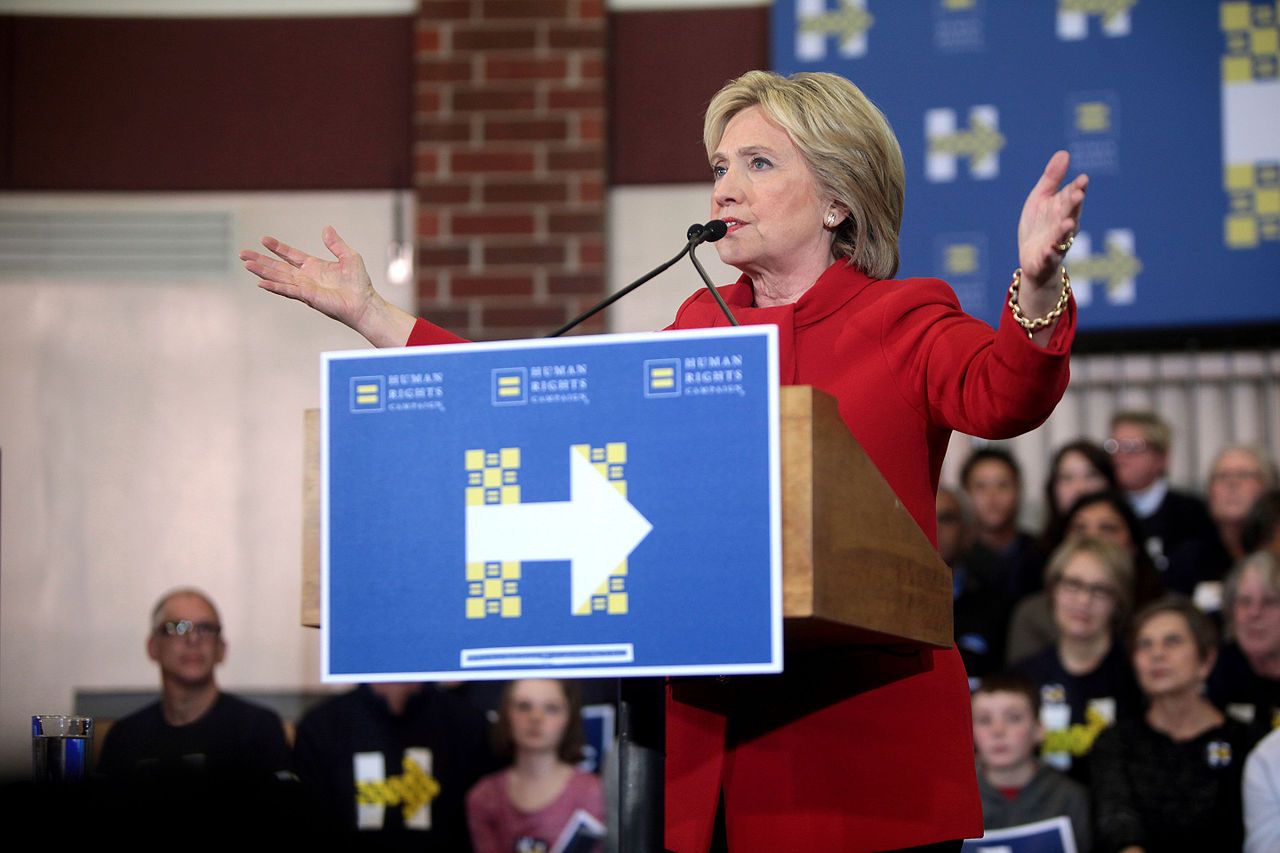Views expressed in opinion columns are the author’s own.
If Hillary Clinton were a university, she would be the University of Maryland. In both campus politics and Clinton politics, insiders are dominant and leaders are complacent. The country is living the disastrous consequence of Clinton’s brand of politics. This university must forge a new path if it is to rebuild after tragedy.
The insider defines both student politics at this university and Clinton politics nationwide. Clinton did her most critical campaigning before announcing her 2016 candidacy. For decades, she accrued the allegiance of Democratic politicians and donors. Serious challengers, such as Sen. Elizabeth Warren, knew that taking on Clinton would be a suicide mission. And, after all the insider politicking, she nearly lost to a grumpy, frumpy socialist from Vermont.
This university’s student politics work in the same way. Before elections, SGA folks jostle behind closed doors for good legislative or executive roles. But, for nearly every position, the student body is presented with only one option: whomever the student government power brokers deem best. Last year, the party of SGA insiders even called itself the “One Party,” in a facepalm-inducing bit of marketing malpractice.
But this university’s governance echoes Clinton politics on more than just the student level: University President Wallace Loh has a deeply Clintonian temperament and leadership style.
Clinton’s persistent failure to take a controversial stand has dogged her throughout her career. Loh, the central political figure on the campus, shares this crutch. They both speak with caution, nodding toward progressive priorities while avoiding action. They’re liberal, I guess. But whenever they’re offered the chance to stand outside the mainstream, they run faster than a Sperry salesman to a frat party.
I offer two quotes to illustrate this crippling political caution.
When police were brutalizing protesters at the proposed site of the Dakota Access Pipeline, Clinton’s campaign released a statement, which read: “From the beginning of this campaign, Secretary Clinton has been clear that she thinks all voices should be heard and all views considered in federal infrastructure projects.”
And when ProtectUMD demanded protection for marginalized students, Loh issued a written response rejecting almost all of the coalition’s demands. In his letter, which amounted to a very wordy middle finger, Loh wrote: “Our University is deeply committed to diversity, inclusion, and social justice. Progress in realizing more fully these values begins by listening and responding, simple as it sounds.”
In both of these cases, activists were demanding help. They revealed injustice and begged political leadership to look and listen. But instead of offering solidarity, Loh and Clinton mumbled for more discourse.
Now, I don’t say this to condemn Clinton or my university. I was “with her” in the primary and the general election. I found Clinton’s faith in America’s greatness reassuring and her commitment to incrementalism oddly moving. Likewise, I love the University of Maryland. Loh handed me several UMD trinkets last year, and he seemed like a very nice man. And I could have ended up an SGA kid myself if I weren’t so scared of strangers.
But the dogmas of these politics are inadequate for our stormy present. This type of governance — exclusive, cautious, content — is defined by its complacency, by its presumption that everything is fine. Everything isn’t fine, though, and pretending otherwise is a recipe for ruin.
Clinton’s campaign was complacent while a demagogue rose to power, confident she could weather populist challenges from the left and the right. She was complacent facing mountains of evidence that Americans distrusted elites and wanted someone to blow up the whole damn thing. Similarly, campus politics was complacent against growing proof — the ProtectUMD demands, white nationalist posters and a noose found in a frat house — that campus life was disordered. Although former SGA president Katherine Swanson, to her credit, supported ProtectUMD, the spring SGA election revealed student government to be a profoundly exclusive institution.
UMD-Clinton politics aren’t equipped to address the deep pain alive in our communities. Donald Trump rose to the presidency on a wave of pain and rage. His election was nothing less than an American tragedy. On campus, we had a tragedy of our own: the killing of black visiting student Richard Collins, allegedly by a white student who participated in racist internet groups. And although I cannot argue more responsive campus politics could have saved Collins’ life, we will never heal if we stay this course. The hate on our campus most likely took a human life; ignorance of that hate isn’t an option.
Trump’s election shook the American left out of its complacency. Richard Collin’s death must be a similar catalyst at this university. This year, campus leaders cannot be Clintonian. This year, let’s set aside the politics of Clinton and embrace a politics that speaks frankly, excludes nobody and works radically in the name of reconciliation and justice.
Max Foley-Keene is a sophomore government and politics major. He can be reached at maxfkcap2016@gmail.com.



